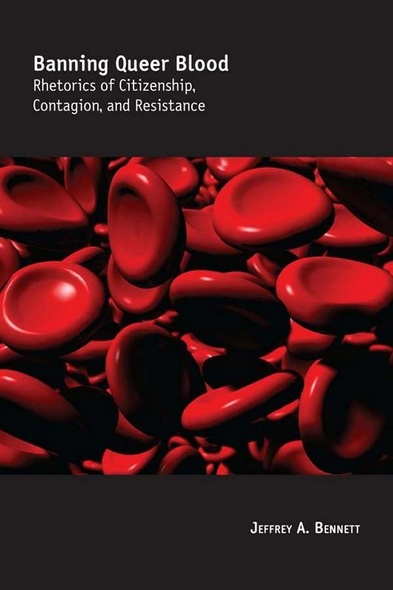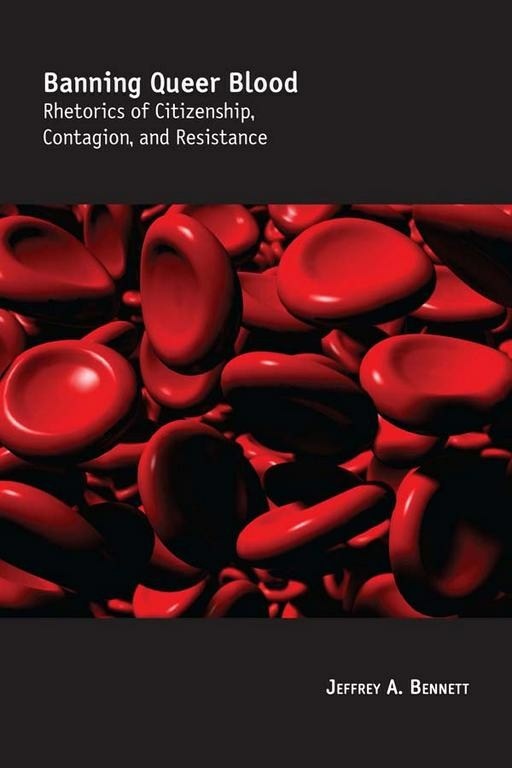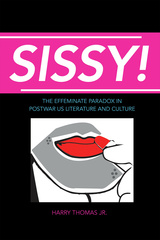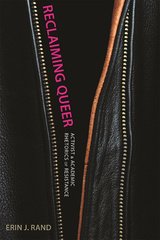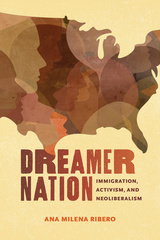Banning Queer Blood
Rhetorics of Citizenship, Contagion, and Resistance
University of Alabama Press
Frames blood donation as a performance of civic identity closely linked to the meaning of citizenship
In Banning Queer Blood, Jeffrey Bennett frames blood donation as a performance of civic identity closely linked to the meaning of citizenship. However, with the advent of HIV came the notion of blood donation as a potentially dangerous process. Bennett argues that the Food and Drug Administration, by employing images that specifically depict gay men as contagious, has categorized gay men as a menace to the nation. The FDA's ban on blood donation by gay men served to propagate the social misconceptions about gay men that continue to circulate within both the straight and LGBT/Queer communities.
Bennett explores the role of scientific research cited by these banned-blood policies and its disquieting relationship to government agencies, including the FDA. Bennett draws parallels between the FDA's position on homosexuality and the historical precedents of discrimination by government agencies against racial minorities. The author concludes by describing the resistance posed by queer donors, who either lie in order to donate blood or protest discrimination at donation sites, and by calling for these prejudiced policies to be abolished.
In Banning Queer Blood, Jeffrey Bennett frames blood donation as a performance of civic identity closely linked to the meaning of citizenship. However, with the advent of HIV came the notion of blood donation as a potentially dangerous process. Bennett argues that the Food and Drug Administration, by employing images that specifically depict gay men as contagious, has categorized gay men as a menace to the nation. The FDA's ban on blood donation by gay men served to propagate the social misconceptions about gay men that continue to circulate within both the straight and LGBT/Queer communities.
Bennett explores the role of scientific research cited by these banned-blood policies and its disquieting relationship to government agencies, including the FDA. Bennett draws parallels between the FDA's position on homosexuality and the historical precedents of discrimination by government agencies against racial minorities. The author concludes by describing the resistance posed by queer donors, who either lie in order to donate blood or protest discrimination at donation sites, and by calling for these prejudiced policies to be abolished.
In Banning Queer Blood, Jeffrey Bennett succeeds marvelously in narrating the conundrum of ‘men who have sex with men’ (MSM), who at work, in social life, and in patriotic political talk are collectively hailed into the sacrificing ritual of blood donation, yet who are also wholly dispermitted from and thus perpetually fail this ritual of citizenship. What keeps in place a policy that is unevenly supported by current scientific capabilities and undermined by current safety procedures at blood donation centers?’
—Rhetoric Public Affairs
‘Bennett points out that the ‘odds of contracting HIV through blood transfusions are extraordinarily miniscule’; moreover, banning this and other purportedly ‘high risk groups’ does not guarantee the purity of the blood supply. Bennett shows how the rhetorical power of ‘blood’ as a metaphor of national belonging outweighs epidemiological knowledge about blood. Bennett's important contribution challenges the neat divide between public health and civil rights.’ —CHOICE
[Banning Queer Blood] traces the intersection of HIV/AIDS, blood supplies, the Red Cross, and queerness over the last quarter–century. . . . The methods used by the author include performativity/queer theory, archival research, rhetorical analysis, and interviews. . . . Throughout I found myself spellbound by the stories told, the ways of telling them, and the subtle methods of procuring and producing them.’
—Toby Miller, author of Cultural Citizenship and The Well–Tempered Self: Citizenship, Culture, and the Postmodern Subject
Jeffrey A. Bennett is an assistant professor of Communication Studies at the University of Iowa. He has published articles in The Quarterly Journal of Speech, Critical Studies in Media Communication, The Journal of Homosexuality, Communication and Critical/Cultural Studies, and Text and Performance Quarterly.
Acknowledgments ix /
1. Queer Citizenship and the Stigma of Banned Blood 1 /
2. Articulating Abjection: Negating Citizenships of Sacrifice and Reproduction 27 /
3. AIDS Memory, Medicinal Prudence, and the Construction of Social Denial 55 /
4. Diseased Citizenship and the Rhetoric of Scientific Deliberation 83 /
5. Passing, Protesting, and the Arts of Resistance: Infiltrating the Ritual Space of Blood Donation 111 /
6. A Radical Tolerance of Experimentation 141 /
Notes 157 /
Works Cited 179 /
Index 189
1. Queer Citizenship and the Stigma of Banned Blood 1 /
2. Articulating Abjection: Negating Citizenships of Sacrifice and Reproduction 27 /
3. AIDS Memory, Medicinal Prudence, and the Construction of Social Denial 55 /
4. Diseased Citizenship and the Rhetoric of Scientific Deliberation 83 /
5. Passing, Protesting, and the Arts of Resistance: Infiltrating the Ritual Space of Blood Donation 111 /
6. A Radical Tolerance of Experimentation 141 /
Notes 157 /
Works Cited 179 /
Index 189

